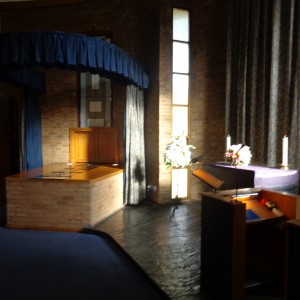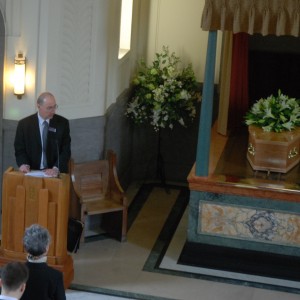A lot of people find it hard to get their head round the fact that I am a funeral celebrant. (With a diploma, to boot.) They think it’s odd enough that I create and lead civil weddings, handfastings, single-sex weddings, vow renewals, ring blessings and baby-namings! But funerals?!! Who’d want to do that?!
I confess that I’d never heard of “civil celebrant” (let alone, funeral celebrant) before I met one not that long ago. When he explained what he did, I was hooked!

So what does a Funeral Celebrant do?
You would normally choose your celebrant according to the amount of spirituality or religiosity you want to include. So your priest could supply the traditional religious service; a humanist would offer a service that may include no religious content at all; a civil funeral celebrant like myself will tailor-make a service to reflect your and your family’s beliefs. It can have the music, readings – also, readers – that you want. Usually, it will be a celebration of life.
The fact is that there is flexibility, and that’s important to know.
Funeral celebrants will either know you already or make an appointment to visit you and find out what your needs are. They will be able to explain what will take place at the funeral and help put your mind at ease. Civil celebrants will question you about your loved one, and try and build up a picture of them for use in the eulogy (assuming there is one).
Ceremonies can be created for funerals at crematoria, cemeteries (natural or otherwise), and also for memorial dedications, graveside tributes or scattering of ashes. I even offer pet funerals!

After meeting you and/or your family and understanding your needs, the funeral celebrant will craft an appropriate service and, usually, e-mail the draft within a couple of days. This is for you to approve in every detail, and I certainly shall willingly rewrite any passages or details that need improvement.
On the day, the celebrant will, of course, conduct the service.
Funeral Directors
In many cases, it is the Funeral Director who recommends clients to Funeral Celebrants. You can book a celebrant independently of a Funeral Director, but I really advise you to find out what is involved before you dispense with them.
Funeral Directors help with the funeral arrangements (including arranging visits of the deceased for the family beforehand, if required, or organising flowers). They also write and place the obituary, prepare the body for burial (including embalming, if necessary), make the music and also transport arrangements, may organise printing of an Order of Service booklet, and bring the body from the hearse (if any) in to the funeral venue.
The Funeral Celebrant will co-ordinate where necessary with the Funeral Director and also with the operatives of the chosen venue. The celebrant takes over, once the body has been brought in. He/she is responsible for the service itself and will deliver the service that has been agreed and approved with the family. He/she also co-ordinates any participation of family or friends in the service.
Is a Funeral Celebrant expensive?
Often, the Funeral Celebrant’s fee is covered by the Funeral Directors’ charges, if it’s a comprehensive service. However, if you arrange a celebrant yourself, you will normally be given a quote before you start working with them. For a single, local booking of about 30 minutes, for a standard service, expect (in 2014) to pay between £160 and £200. This covers the home visit, preparation and conducting of the service.
Expectations
A Civil Funeral Celebrant should create and deliver a meaningful, memorable ceremony that honours and celebrates your loved one, and takes into account your religious beliefs and particular desires and choices. It should be bespoke.
Qualities of a Civil Celebrant
A celebrant will work professionally, with sensitivity and understanding, not only with you but also with relevant funeral professionals. He/she should be able to inform and reassure you beforehand, as well as compile a beautiful service – and be able to present it successfully.
It’s not the easiest of jobs, but the various challenges make it fascinating – and no two ceremonies are ever the same.
It is such rewarding work. I cannot begin to express my satisfaction when the family tells me afterwards that the service was wonderful – just what the deceased would have liked. If guests come up to me, as so often happens, and say that, to their surprise, they actually enjoyed the service, then I know that that was a job well done!
So I hope I have answered the question, “Why become a Funeral Celebrant?”
Michael Gordon can help prepare and conduct a tailor-made civil ceremony in or around London or, indeed, in Europe.
